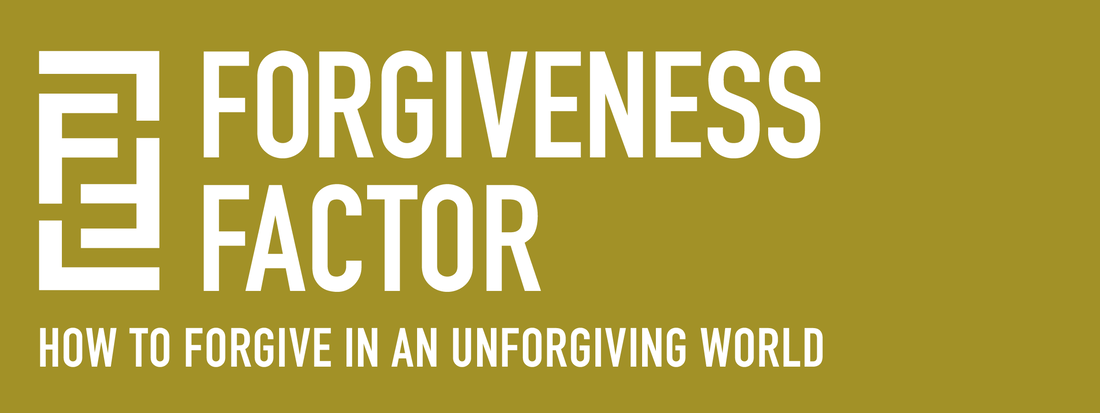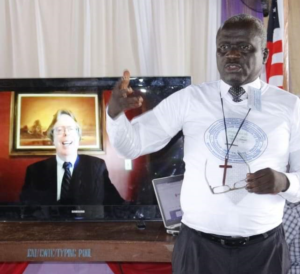Tagged: “break free from the past”
Liberia Seeks Peace Through Forgiveness

Forgiveness Education class at Mother Tegeste Stewart Apostolic Pentecostal School in Brewerville, Monrovia, Liberia.
Bishop Brown has been working with IFI co-founder Dr. Robert Enright to implement elementary and secondary school Forgiveness Education initiatives (including for all 500 students at the Mother Tegeste Stewart Apostolic Pentecostal School in Brewerville), after-school forgiveness education clubs, and Sunday School forgiveness lessons. Since 2017, Group Forgiveness interventions also have been incorporated into the LFEP thanks to Bishop Brown’s significant role in governmental affairs.
“I suggested that approach, in all humility, because dialogue will not be fruitful if those engaging in the dialogue are still very angry about past grievances,” Dr. Enright explained. “Forgiveness is a scientifically-supported way of eliminating that anger.”
- Can Group Forgiveness In Liberia Lead to Peace?
- A New Strategy for Peace in the World. . . The Enright Forgiveness Inventory
- First Ebola, Now Coronavirus: Liberia Suffers Again
Learn How to Forgive
You can add a methodical, rejuvenating process of forgiveness to your life by attending the upcoming 6-session “Freedom Through Forgiveness” course that begins September 29.
Taught by forgiveness instructor Tim Markle, the in-person course provides the tools and techniques that will enable you to gain a factual understanding of what forgiveness is, what it is not, and how to use it to methodically improve your health and well-being. The interactive sessions are based on the 20-step “Forgiveness Process Model” developed by Dr. Robert Enright, co-founder of the International Forgiveness Institute (IFI) whom Time magazine calls “the forgiveness trailblazer.”
The course is being sponsored by Stoughton Health with classes held at Stoughton Hospital from 6:30-8:00 pm on consecutive Thursday evenings from September 29 through November 10 (with no class on November 3). The facility is located in Stoughton, WI, 17-miles southeast of Madison. There is no charge for the course but enrollment is limited and pre-registration is required. Visit Freedom Through Forgiveness – Stoughton Health for more information or call Stoughton Health at 608-877-3498.
Markle is an Outreach Specialist at the University of Wisconsin-Madison Waisman Center where he works to improve the lives of children and adults with developmental disabilities and neurodegenerative diseases.  He earned a BA in Psychology from Bowling Green State University, a Masters in Counseling (MC) from John Carroll University, and a Master of Arts in Christian Studies (MACS) from Trinity Evangelical Divinity School. He is a contributing writer and speaker for the IFI and the founder of a forgiveness education organization called Forgiveness Factor.
He earned a BA in Psychology from Bowling Green State University, a Masters in Counseling (MC) from John Carroll University, and a Master of Arts in Christian Studies (MACS) from Trinity Evangelical Divinity School. He is a contributing writer and speaker for the IFI and the founder of a forgiveness education organization called Forgiveness Factor.
I have a co-worker who never stands up for himself nor does he even politely confront those who are giving him a hard time. Instead, he gets angry (away from those with whom he is in conflict). Sometimes that anger comes out toward me. He can occasionally bang his fist into the top of his desk. Do you think his actions are sufficient to relieve his anger or does this even help at all?
Your co-worker seems to be using the psychological defense of displacement, which means to take out the anger on something or someone else rather than on the original person who acted unfairly. In the short-run your co-worker might experience some relief from this catharsis, but in the long-run, as I am sure you know, his hitting the top of the desk will not solve the injustice. If your co-worker can do some forgiving and exercise this along with courage and a quest for justice, then he might be able to go to those at whom he is angry and talk it out in the hope of a fair resolution.
I seem to be lost on the forgiveness path. I try and try, but I do not think I have made much progress in forgiving my partner and this has been going on for about a year. Should I just get off the forgiveness path regarding my forgiving him?
Before you give up, I have some questions for you:
1) Have you committed to doing no harm to your partner, even in the context of your having the opportunity to somehow hurt him? If you answered, “Yes, I have committed to doing no harm,” then you are not lost on the forgiveness journey. This is a big step in the process;
2) Have you tried to see his weaknesses, his confusions, his wounds that may have wounded you? If not, perhaps you need to do some of this cognitive work, to see him in a wider perspective than only his injuries toward you;
3) Do you think that your will is strong enough to do the work outlined in #1 and 2 above? If so, that work could lead to your forgiving if you give this time.
So, what do you think? Have you found your way back onto the path of forgiveness?
How do I know, with some degree of confidence, that I am ready to reconcile with the other person?
Reconciliation is different from forgiveness. When we reconcile, this is a process of two or more people coming together again in mutual trust. Reconciliation is conditional on the other person’s willingness to change, if he or she was the one who acted unfairly. Forgiveness, in contrast, can be offered unconditionally to the other as a form of respect, understanding, compassion, and even love, even if there is no reconciliation. So, you can forgive without reconciling.
With all of this as background, here are four questions which might help you decide if you are ready to reconcile (and I am presuming that the other is the one who has hurt you):
1) Has the other shown an inner sorrow about what he or she did? We call this remorse;
2) Has the person verbally expressed this sorrow to you. We call this repentance;
3) Has the person made amends for what happened (and we have to ask if he or she has done so within reason because sometimes we cannot make full amends. For example, if someone stole $1,000 from you but truly cannot repay it all, then you cannot expect that he or she can make amends in any perfect way). We call this recompense;
4) If the person has shown what I call the “three R’s” of remorse, repentance, and recompense, then do you have even a little trust in your heart toward the person? If so, then perhaps you can begin a slow reconciliation, taking small steps in rebuilding the relationship. Your answer to these four questions may help you with your question: How do I know that I now am ready to reconcile?




